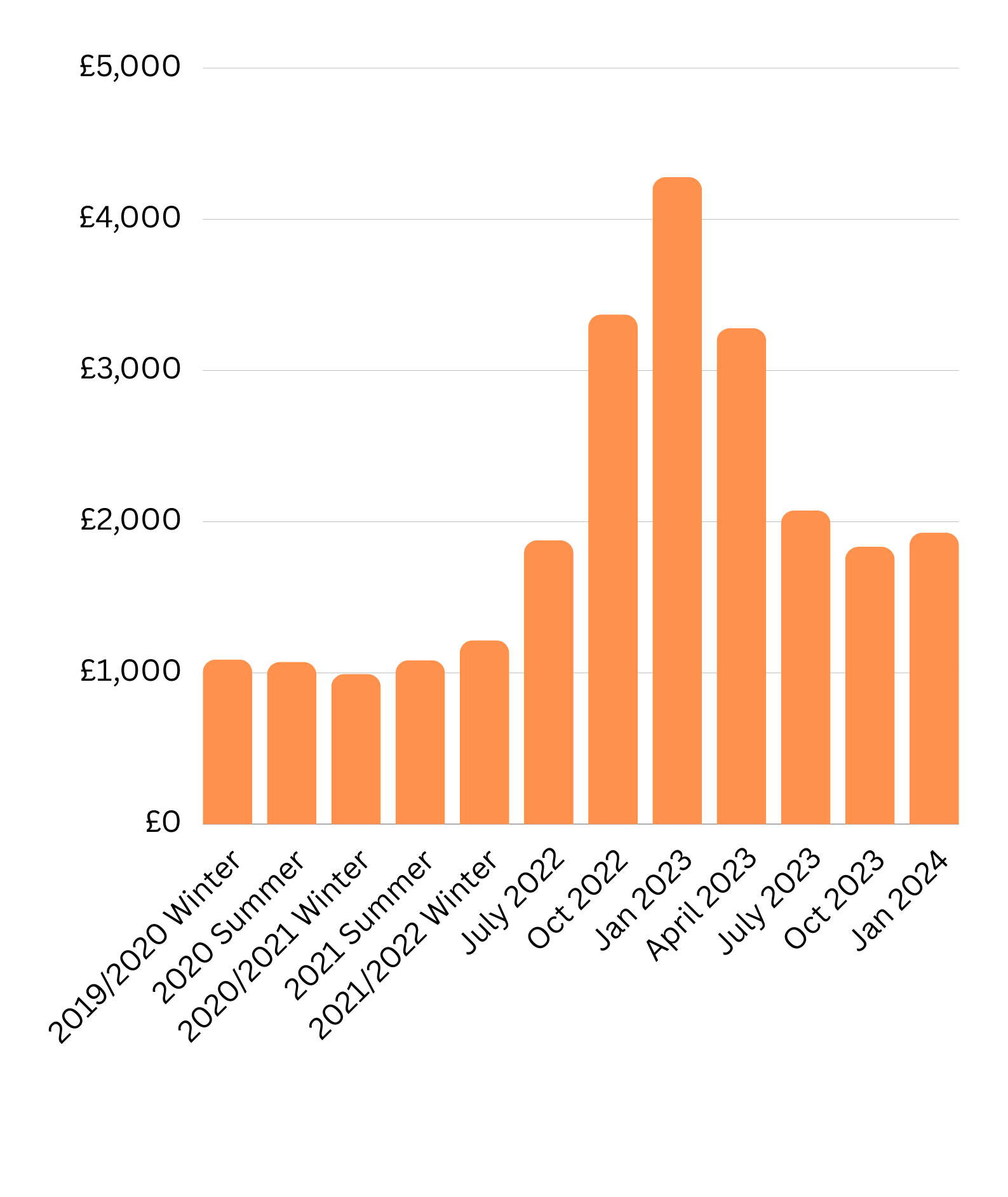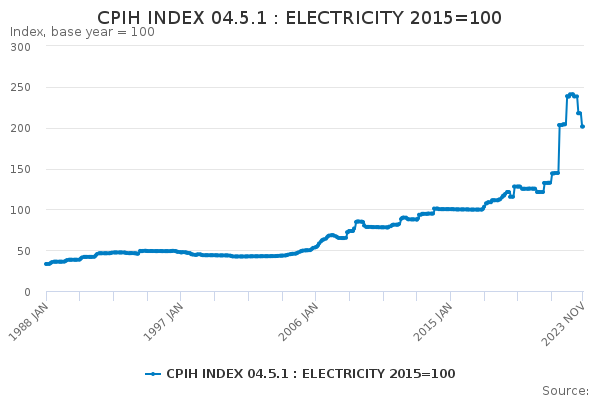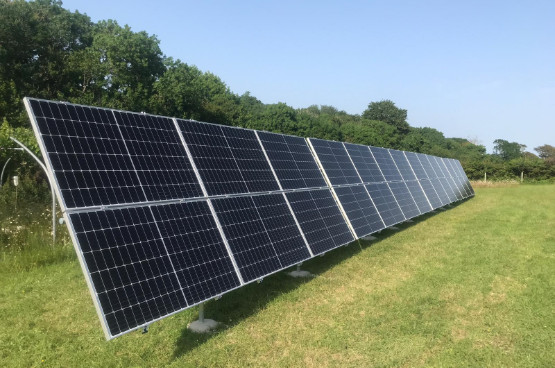Homeowners Electricity Bills Set to Rise in 2024
Ofgem announced that from Monday 1st January, the energy price cap of a typical household that uses dual fuel paying by direct debit will increase by 5% compared to the previous quarter. Homeowners will see an increase in their energy bills because of market instability and recent global events.
Who Are Ofgem and What does the ‘cap’ mean?
Ofgem are the regulators who protect consumers to ensure they receive greener and fairer energy and dictate the maximum energy firms can charge for their standing tariff.
This quarter we see the tariff increase by £94.00, this will take the tariff price cap from £1,834 to £1,928 per year. The cap limits the amount that a supplier can charge for their default tariff it includes:
- The standing charge – a fixed daily amount you have to pay for energy, even if you do not use any energy on that day.
- The price for each unit of electricity – measured in pence per kilowatt hours, or p/kWh.
If you prepay for your energy, the government will continue to add a small subsidy to prepay rates under the price cap after committing to end the prepay premium earlier this year.
The most common misconception is that the cap sets a limit on your total energy bill but this is not the case. The energy cap only limits the price of a unit (kWh) of energy. The more units of energy you use, the more you will pay.
Ofgem’s Energy Price Cap History
What is the current price cap?
From 1 January 2024 to 1 April 2024, the following rates and charges will apply*:
| Electricity | 1st January to
31st March 2024 |
1st October to
31st December 2023 |
|---|---|---|
| Unit Rate | 28.62p per kWh | 27.35p per kWh |
| Standing Charge | 53.37p per day | 53.37p per day |
The price cap is reviewed every three months to meet wholesale supplier changes for energy companies. *The current cap is based on a ‘typical household’, factors such as the tariff you are on, how you pay for your energy and where you live could see you paying above this cap, get a breakdown here.
You may be wondering if the price cap effects me? The price cap increase will apply to you if: you’re on a default tariff, your fixed term energy tariff expires and you do not switch in time, your previous energy supplier has gone bust or if you have moved home. If you are currently under a fixed-term energy contract with rates higher than the energy price cap, your tariff will remain unchanged. It’s advisable to contact your energy provider to inquire about potential exit fees and the process of switching to their standard tariff.
Why more people are switching to solar
Savvy homeowners have already safeguarded themselves against future increases in energy costs by adopting solar energy, which offers a solution free from inflation concerns. There are various types of renewable technologies available, each with their own benefits and considerations. If the the price of electricity continues to rise, the amount you save also increases, so the payback time will be shorter. This means solar PV could be an even more attractive investment especially with solar being more affordable than ever, according to the International Renewable Energy Agency (IRENA) global cost study shows levelised cost of Solar PV (kWh) for the past 10 years has decreased by 88%.
Are Solar Panels Worth it?
With rising energy prices and the uncertainty on the future costs of electricity, generating your own renewable energy with an installation of solar panels on your home has various benefits. There are numerous benefits to installing solar panels on your home:
- Lower energy bills: Generating your own energy with solar panels to supply both your house and vehicles decreases your reliance on the national grid. To optimise these cost savings, it’s likely necessary to invest in a solar battery too
- Get Paid for the energy you do not use: If you have solar panels installed, through the Smart Export Guarantee (SEG) you can earn money for any energy you do not use. You will be paid for each kilowatt hour (kWh) of electricity you generate from solar panels. The Energy Saving Trust estimates that a typical household could make between £100 and £145 a year based on a rate of 5.5p per kWh.
- Solar Power is a clean and green energy source: By generating electricity that does not emit harmful greenhouse gases, this contributes to reducing both your own and the UK’s carbon footprint.
How Much Could You Save By Installing Solar Panels?
Savings depend on system size, electricity use, roof orientation and pitch. According to the Energy Saving Trust, a three bed semi-detached house in London could save up to £540.00 to £590.00, depending on SEG (Smart Export Guarantee) payments. To further maximise self consumption homeowners can also invest in battery storage which from February 2024 will become 0% VAT.
Why Choose SunGift Solar as my Solar PV Installer
We have been a leading solar installer since 2005 and our mission is to allow you to live a low carbon lifestyle. With dedicated domestic, commercial and maintenance divisions we have unparalleled expertise in our field with a track record of delivering industry leading solar installations across the UK.
- 5 star reviews
- NIC EIC + MCS Certified
- Which? Trusted Trader
- In-House team of Installers
- End-to-End Project management
If you would like to explore your options please arrange a consultation with a member of our friendly domestic solar team today.

 Solar PV Contractor of the Year 2024
Solar PV Contractor of the Year 2024

